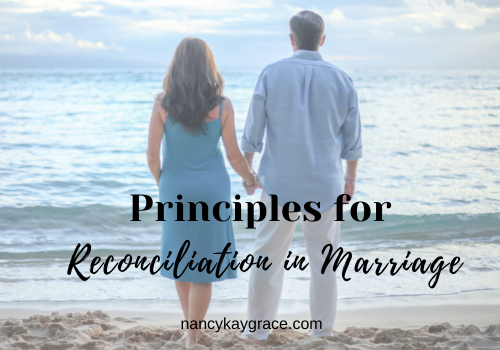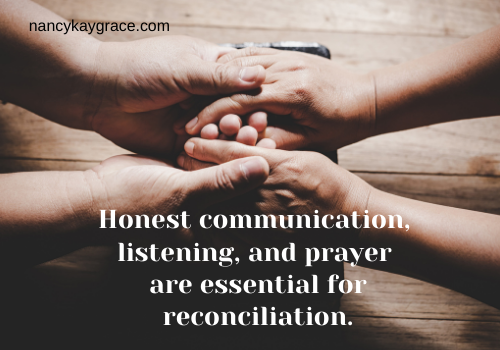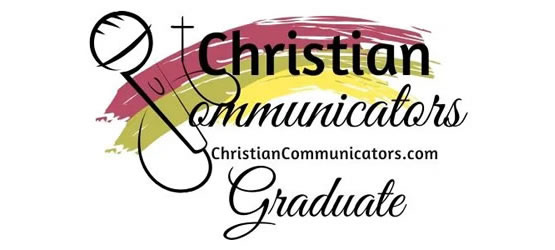Reconciliation in marriage is challenging, but is worth the effort.
Marriage begins with the hope of living happily ever after, as we’ve been taught from fairy tales. However, because life is messy, the marriage gets messy. The husband-wife relationship gets tangled up with work responsibilities, children, church, and many other activities. Disillusionment sets in. This unanticipated and unwanted strain steals our joy and creates tension.
Living happily ever after becomes a storyline in a movie, not real life.
God lays out a higher standard for marriage which gives us hope in our relationships.
So we make it our goal to please him, whether we are at home in the body or away from it. 2 Corinthians 5:9 NIV
The goal of living to please God includes our daily lives as individuals and our relationships.
God’s pattern for reconciliation is shown in Jesus Christ.
God did the ultimate act of reconciliation by bringing us back into relationship with him through Jesus Christ.
Reconciliation means to bring two parties back into harmony. As Christians we are to love one another, our neighbors as ourselves, and love our enemies. We think of applying these commands to people outside our families, but they are key to our marriage relationship.
How is reconciliation lived out?
My spouse is my nearest neighbor, so I must choose to love him. It sounds easy enough, but at times my spouse frustrates me and seems like my enemy. A relational glitch or rough patch occurs in the relationship due to a misunderstanding or faulty assumption. I am still commanded to love him at those times. I have to make the decision for reconciliation. It is a crucial part of the marriage journey.
Reconciliation is necessary in marriage, in the small problems and the big issues. Honest communication and careful listening to each other begin to break down the walls. Talking, sharing feelings about the issue, and listening to the other person’s point of view are steps of reconciliation. We may not agree, but we gain empathy and understanding of our spouse. A lot of grace is needed in marriage. Effective communication leads to greater understanding in every relationship.
Reconciliation and forgiveness change a marriage.
Forgiveness is hard to extend when marriage is messy. In a God-centered marriage, we must put aside our pride and choose to forgive.
One aspect of forgiveness is the refusal to retaliate. This choice improves the relationship, modeling selfless love by putting my spouse first. It also displays sacrifice, the laying aside of my agenda on behalf of my spouse. This is hard to do, but it can be done with through the love of God. As Christ-followers, we are to reflect Christ to each other.
Prayer is essential to grow through the glitch. I may not feel like praying, but I know I need to pray for God’s forgiveness and for God’s help to forgive others.
Where would we be without the forgiveness of Christ? God’s love carries us when our love runs out.
We know and rely on the love God has for us. 1 John 4:16 NIV
God is pleased when forgiveness and reconciliation occurs. His grace flows to us and through us.

Every marriage is a work in progress through all the stages and seasons of life. Through effective communication, sharing feelings, listening, and prayer, a marriage can get back on the track to joy.
Reconciliation in marriage is challenging, but it brings hope and honors God.







